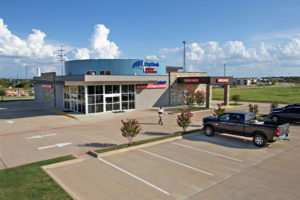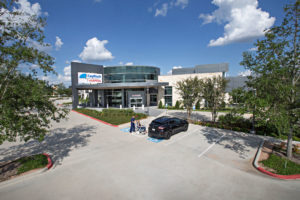Most serious illnesses or injuries benefit from earlier evaluation and treatment. Therefore, to improve outcomes and patient convenience, there has been an increase in the number of emergency rooms and urgent cares throughout the country. And, these facilities are moving deeper into communities to be more readily accessible during times of immediate need.
While these can be of great benefit, they also provide what can be a confusing choice: “Where should I go for this problem? Is this an emergency room type of emergency? Or would an urgent care facility be more appropriate?”
It’s always important for everyone to have an established relationship with a primary care physician. This is the best, and most cost-effective, place to go to for all general medical concerns. Consistently seeing the same doctor greatly benefits your overall healthcare. Furthermore, your doctor is the best resource for those “is this something I need checked out now or not” questions.
Of course, primary care doctors can’t always be available and don’t always have appointments open when you need to be seen right away. Furthermore, many urgent cares and all ER’s have capabilities that are beyond what most primary cares have available. If what you or your loved one are suffering requires medical attention within a day or a weekend, then your choices will be primarily between an urgent care facility and an ER.
The following is a guide to help you determine the most medically appropriate and cost-effective solution when you run into this type of healthcare problem:
When to Choose Urgent Care
Urgent care facilities provide the same type of care your primary care doctor provides but will see you with no appointments necessary and often at times when your primary care physician is unavailable (i.e. late evenings and weekends). These facilities are the ideal places to go for minor illnesses and injuries that need evaluation as quickly as possible but that are not life-threatening. In other words, urgent needs but not emergent needs.

Good examples of urgent care-appropriate illnesses and injuries include:
- Lingering fever without a rash
- Sinus infections
- Sports injuries
- Minor cuts that may require stitches
- Skin infections
- Sprains and strains
- Asthma or non-life threatening wheezing
- Rashes
The reason to choose an urgent care facility rather than an ER is because the out-of-pocket costs will typically be lower. Your local urgent care facility is staffed by medical professionals and is properly equipped to diagnose and treat most minor illnesses. Furthermore, the professionals at an urgent care can direct you to the appropriate emergency room if necessary.
The disadvantages of an urgent care is that, while they have extended hours, they are not usually open 24 hours daily and cannot treat all emergencies. Urgent cares have limited diagnostic studies, medications, and specialists compared to an emergency room.
When to Choose an Emergency Room

ERs can evaluate and treat any patient with any condition and, by law, are open 24 hours a day/ 365 days a year. Emergency rooms are staffed by emergency medicine specialist physicians, emergency specialist nurses, and have access to broader diagnostics and on-call specialists, like surgeons. Unlike urgent care clinics, licensed emergency rooms are adept at dealing with urgent, acute, and life-threatening ailments.
If you or your loved one has suffered an accident or has an illness that you believe could pose a risk to their life or serious health consequences, then you absolutely should be seen in an emergency room. Federal and State law protects you in these situations and requires your insurer to cover your emergency care at any licensed ER for the same rate, regardless of network status.
Often, in these situations, it is best to call 9-1-1 to get an ambulance in cases where starting medical treatment at your location is necessary or when driving yourself is not advisable.
Good examples of ER-appropriate illnesses and injuries include:
- Chest pain
- Difficulty breathing
- Abdominal (stomach) pain
- Severe bleeding and/or deep tissue cuts
- Sudden loss of vision
- Numbness, weakness or tingling of any part of the body
- Head or spine trauma
- New seizures or a seizure that lasts longer than three minutes
- Fever accompanied by a rash
- Allergic reactions
Getting Transferred to a Hospital Wing
Urgent care and ER facilities are the places you go for immediate diagnosis and treatment but, in some cases, you or your loved one may need extended care. For this, there are hospitals.

Hospitals are designed to provide long-term care for patients and will often also perform more routine or specialized surgeries and out-patient procedures. Some hospitals will have specialties, such as in certain types of cancer, and so your urgent care or primary physician, or the ER team you first go through may redirect you to another hospital to get you the highest level of care.
CapRock Can Help!
At CapRock, we recognize that it can be difficult for all of us to determine what is routine, urgent or emergent. Therefore, we offer all patients a free medical screening exam at all of our locations. This way, we can advise our patients on the best location for receiving care. So, if you are unsure, just choose the location that seems best and we will help with the rest!

